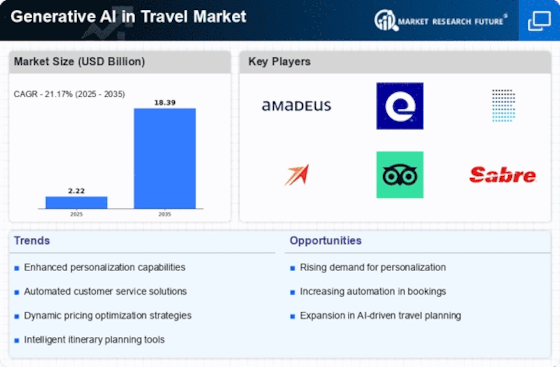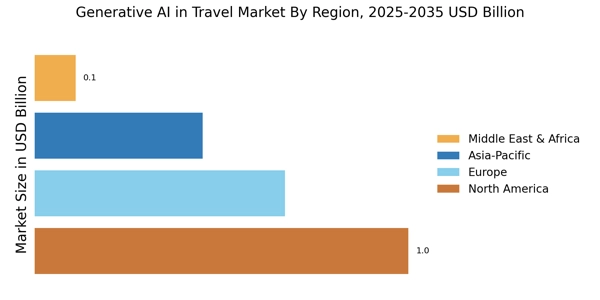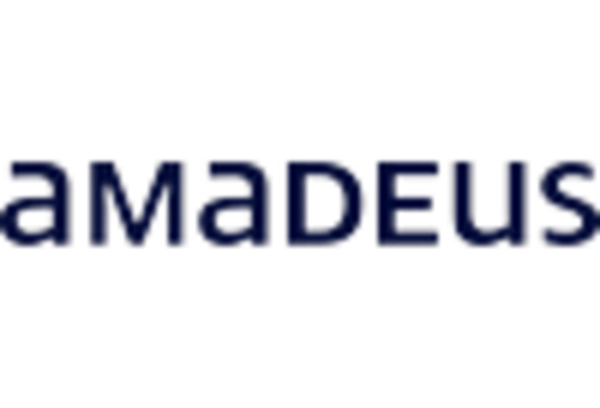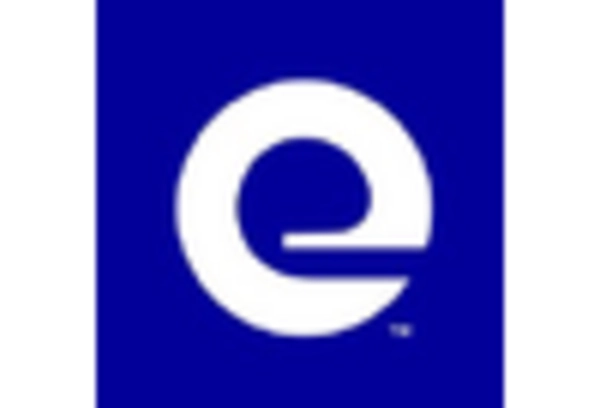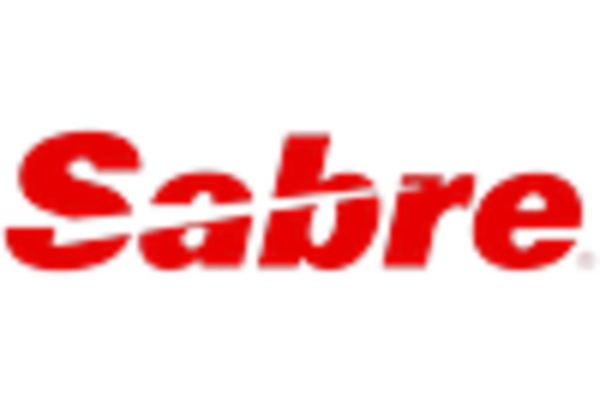Enhanced Data Analytics Capabilities
The Generative AI in Travel Market benefits from enhanced data analytics capabilities, which allow companies to make informed decisions. By leveraging AI algorithms, travel businesses can analyze customer behavior, preferences, and market trends with unprecedented accuracy. This data-driven approach enables companies to optimize pricing strategies, improve marketing efforts, and enhance service offerings. For instance, a study indicates that companies utilizing advanced analytics experience a 15% increase in revenue compared to those that do not. As the travel industry becomes more competitive, the ability to harness data effectively will be crucial for success. Generative AI tools are at the forefront of this transformation, providing insights that drive strategic decision-making.
Automation of Customer Service Processes
The Generative AI in Travel Market is increasingly automating customer service processes, which enhances operational efficiency. AI-driven chatbots and virtual assistants are being deployed to handle inquiries, bookings, and complaints, allowing human agents to focus on more complex issues. This automation is projected to reduce operational costs by up to 30%, as companies can manage higher volumes of customer interactions without a proportional increase in staff. Furthermore, the 24/7 availability of AI solutions improves customer satisfaction, as travelers can receive assistance at any time. As the industry continues to embrace automation, the reliance on generative AI tools is expected to grow, fundamentally transforming how travel companies interact with their customers.
Integration of AI in Travel Planning Tools
The Generative AI in Travel Market is seeing a notable integration of AI in travel planning tools, which streamlines the trip planning process. These tools utilize generative AI to provide users with real-time suggestions for flights, accommodations, and activities based on their preferences. This integration not only saves time for travelers but also enhances the overall planning experience. Recent surveys indicate that 60% of travelers prefer using AI-driven tools for planning their trips, highlighting a shift in consumer behavior. As more companies adopt these technologies, the demand for generative AI solutions in travel planning is expected to rise, creating new opportunities for innovation and growth in the industry.
Sustainability and Eco-Friendly Travel Solutions
The Generative AI in Travel Market is increasingly focusing on sustainability and eco-friendly travel solutions. As travelers become more environmentally conscious, there is a growing demand for options that minimize carbon footprints. Generative AI can assist in identifying sustainable travel routes, eco-friendly accommodations, and responsible tourism activities. This trend is supported by data showing that 50% of travelers are willing to pay more for sustainable options. Consequently, travel companies are leveraging generative AI to develop and promote eco-friendly packages, aligning their offerings with consumer values. This focus on sustainability not only meets market demand but also positions companies as leaders in responsible travel, potentially enhancing their brand reputation.
Increased Demand for Personalized Travel Solutions
The Generative AI in Travel Market is witnessing a surge in demand for personalized travel solutions. Travelers increasingly seek tailored experiences that cater to their unique preferences and needs. This trend is driven by advancements in AI technology, which enables companies to analyze vast amounts of data to create customized itineraries. According to recent data, 70% of travelers express a preference for personalized recommendations, indicating a significant market opportunity. As a result, travel companies are investing in generative AI tools to enhance customer engagement and satisfaction. This shift towards personalization not only improves the traveler experience but also fosters brand loyalty, as customers are more likely to return to companies that understand their individual desires.


